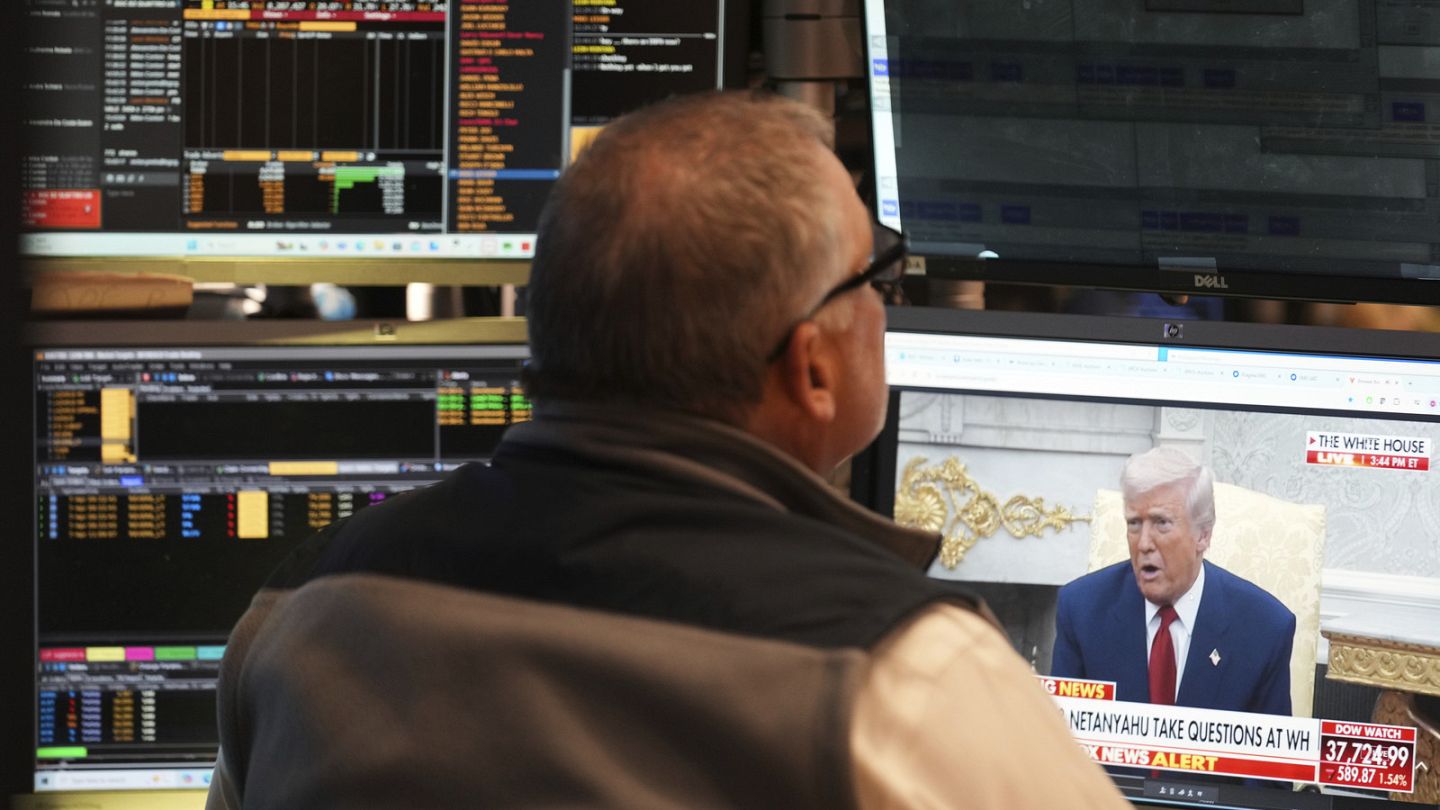How did the false news about a break in customs tariffs cause fluctuations in the stock market?
US markets fell again after a brief rise at the beginning of the week due to false rumors that President Donald Trump was considering a 90-day pause on tariffs.
A misleading news headline claiming that US President Donald Trump was considering a 90-day pause on comprehensive tariffs caused a temporary rise in US stock markets on Monday, but the markets collapsed again after the White House denied the news. The claim spread rapidly on social media, creating an estimated $2.4 trillion in market value before being deleted within minutes. The rumors appear to originate from an interview Fox News conducted with White House economic advisor Kevin Hassett on Monday morning. When asked live whether the administration would be "thinking about a 90-day pause" on tariffs, Hassett responded, "You know, I think the President will make that decision himself." He added, "There are more than 50 countries negotiating with the President." These comments were later misleadingly reported as the Trump administration actively considering such a pause. The first report identified by Euroverify was posted by an account named "Hammer Capital," which has only 800 followers, about two hours after Hassett's interview. Later in the day, a now-deleted X post by "Walter Bloomberg" claimed, citing Reuters, that Trump was considering a "90-day pause on tariffs for all countries except China." Both X accounts have a blue verification 'tick', but they are not affiliated with any established media organization or recognized as stock investors. On CNBC, as host Carl Quintanilla stated live, it could be seen that stocks dramatically rebounded: "I think we can run with this headline: It seems Hassett says Trump is considering a 90-day pause on tariffs for all countries except China." A Reuters headline seen by Euroverify read: "Wall Street changed course after Hassett's comments on pausing tariffs." Both Reuters and CNBC have since issued corrections. "While tracking news related to market movements in real time, we published an unconfirmed piece of information in a headline. A CNBC spokesperson stated that our reporters quickly corrected it on air," they said. The White House denied the news, and the markets became confused. A government-owned X account published a statement indicating that the news was "false," along with a video of Hassett's original statement. White House Press Secretary Karoline Leavitt characterized the news as "fake news." This led to rapid gains evaporating within minutes. The news had previously caused the Dow Jones Industrial Average to erase a loss of 1,700 points and rise over 800, before reverting back to a loss of 629 points. The incident illustrates the markets' vulnerability to fake news. Regardless of the source of fake news, this event reminded that stock markets have become quite defenseless against erroneous headlines. In 2013, AP's official Twitter account was hacked and a post claimed there were explosions at the White House and that then-President Barack Obama had been injured. This resulted in nearly a 150-point drop in the Dow Jones Industrial Average. Two years later, Twitter, which was taken over by South African-born billionaire Elon Musk and renamed X, saw its shares spike over 8% after a fake news story mimicking Bloomberg's news format claimed that a $31 billion takeover offer had been made to the company.


